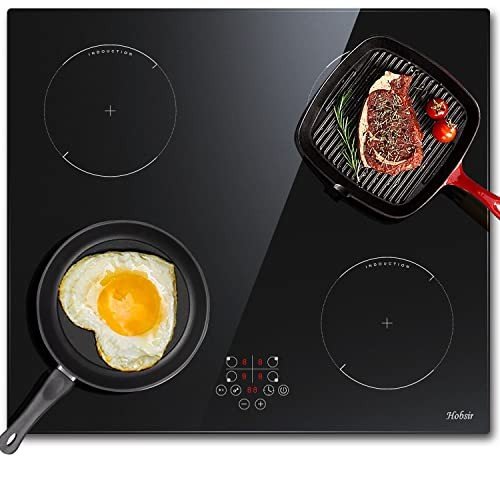The People Nearest To Cookers And Hobs Uncover Big Secrets
Understanding Cookers and Hobs: A Comprehensive Guide
Cooking is an important element of every day life, and the evolution of kitchen appliances plays a substantial function in how effectively and efficiently people prepare their meals. Amongst these devices, cookers and hobs are 2 of the most essential instruments discovered in contemporary kitchen areas. This article explores the differences in between cookers and hobs, analyzes their different types, and uses insights on their functions, upkeep, and selection process.
What are Cookers and Hobs?
Cookers
Cookers are comprehensive kitchen appliances designed for cooking tasks, usually integrating an oven and a hob. They can be found in different configurations and types, catering to diverse cooking requirements and preferences.
Hobs
Hobs, on the other hand, are more focused home appliances mostly utilized for boiling, frying, and other stovetop cooking techniques. Hobs can be standalone systems or an integrated part of larger cookers.
Function
Cookers
Hobs
Function
Combines oven and hob
Stovetop cooking just
Design
All-in-one system
Separate system or integrated
Types
Electric, gas, dual fuel
Gas, electric, induction
Setup
Permits more flexibility
Built into the countertop
Rate Range
Usually higher
Differs commonly
Types of Cookers
1. Electric Cookers
Electric cookers use electrical energy as their primary source of power. They typically feature an integrated oven and multiple cooking zones on the hob.
Advantages:
- Even heat circulation
- Offered in different designs (e.g., freestanding, integrated)
2. Gas Cookers
Gas cookers work on gas or liquefied petroleum gas (LPG). They offer immediate heat control, making them a favorite among expert chefs.
Benefits:
- Instant heat adjustments
- More budget friendly functional costs
3. Double Fuel Cookers
Double fuel cookers integrate the heat of gas with the effectiveness of electric ovens. Fan Oven Sales permits the best of both worlds, supplying control and consistent results.
Advantages:
- Flexible cooking options
- Exact control over stovetop cooking and baking
4. Range Cookers
Variety cookers are bigger and more powerful than basic cookers, including several ovens and hobs for substantial cooking tasks.
Advantages:
- Ideal for large families or cooking for occasions
- Provides different cooking choices in one device
Types of Hobs
1. Gas Hobs
Gas hobs are preferred for their quick heating and strong flame, making them exceptional for searing and stir-frying.
Benefits:
- Instant heat and control
- Suitable with any type of cookware
2. Electric Hobs
Electric hobs warm up using electric coils or glass-ceramic surfaces, offering a modern appearance and efficient cooking.
Benefits:
- Easier to clean up
- Uniform surface ideal for different pots and pans
3. Induction Hobs
Induction hobs utilize magnetic fields to heat pots and pans straight, offering fast and energy-efficient cooking.
Advantages:
- Safe (cool surface after getting rid of cookware)
- Energy-efficient and exact
4. Strong Plate Hobs
These traditional hobs use strong electric plates that warm up gradually.
Benefits:
- Rugged and long lasting
- Normally more budget friendly than other types
Secret Features to Consider
When selecting a cooker or hob, numerous functions need to be taken into account:
- Size and Space: Consider the size of your kitchen and the quantity of work area needed.
- Cooking Style: Choose based on choice— gas for control, induction for effectiveness, and so on.
- Performance Ratings: Look for energy-efficient models to reduce utility bills.
- Relieve of Cleaning: Smooth surfaces help with easy upkeep.
- Safety Features: Automatic shutoff, flame failure devices, and child locks boost safety.
Maintenance Tips
Preserving cookers and hobs prolongs their lifespan and makes sure safe operations.
- Regular Cleaning: Wipe down surfaces after usage to avoid buildup.
- Check Seals: Check oven door seals frequently for wear and tear to keep effectiveness.
- Service Regularly: Schedule expert servicing at least as soon as a year.
- Ideal Cookware: Use pots and pans proper for your hob type to prevent damage.
Often Asked Questions (FAQs)
What is the difference between a cooker and a hob?
A cooker combines an oven and hob in one system, while a hob is typically a standalone appliance for stovetop cooking.
Do I need an expert to set up a gas cooker or hob?
Yes, professional installation is recommended for gas home appliances to ensure security and compliance with regional policies.
Can I use any type of cookware on induction hobs?
Induction hobs need magnetic cookware. Stainless-steel or cast iron pots work best. Non-magnetic materials will not warm up.
Are electric cookers more energy-efficient than gas cookers?
While both have benefits, electric cookers tend to be more energy-efficient overall, particularly with modern, high-efficiency designs.
How often should I clean my cooker or hob?
It is best to clean them after each use and carry out a thorough cleaning weekly to prevent buildup and residue.
Understanding the differences, functions, types, and upkeep ideas for cookers and hobs is essential for any home cook. By picking the ideal home appliance fit to their culinary requirements, users can enhance their cooking experience, making meal preparation an efficient and enjoyable task. Whether going with the immediate control of gas or the smooth effectiveness of induction, choosing the suitable cooker or hob can lead to a notably boosted kitchen experience.
